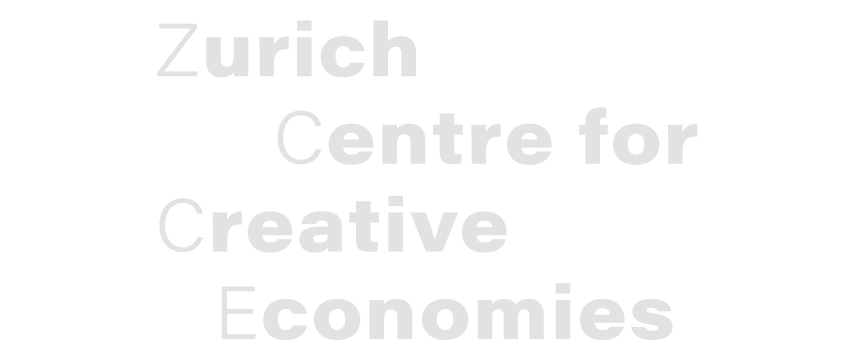An atypical figure in the sciences, Bruno Latour is one of the most influential French philosophers today.
“Où atterrir?”; “Où suis-je ?”: These are the titles of French philosopher Bruno Latour’s two most recent books and also their main questions. Latour, a thinker of ecology and the digital humanities, has his feet on the ground rather than above. His best-selling Où atterrir? (whose title reads more appealingly in its English translation, Down to Earth: Politics in the New Climactic Regime, 2018), marks a rare success for an author widely considered obscure. This short 150-page essay is an important work that, upstream, summarises Latour’s thinking — whose last name has become a recognised adjective (“Latourian”) — and that, downstream, reads like a theoretical manual on understanding the coming “ecological century.” If we could take one book by Latour to a desert island, this would be the one.
And yet, Latour published an immense, even audicious, body of work before Down to Earth. As a sociologist, anthropologist and philosopher of science, he became interested in microbes early in his career: eluding human vision, these microorganisms, so Latour, affected our lives until their discovery by Pasteur (see Latour’s Pasteur and La Vie de laboratoire, published in 1984 and 1988, respectively). At the time, Latour had already hypothesised that humans were not the only actors on planet Earth. The Covid epidemic has since brought home this truth, as if we had needed to be reminded.
“Actor-network theory” (commonly known as ANT) completes his early work. Conceived from the 1980s onwards, and developed subsequently by several scholars, including Latour, this sociological theory takes into account, beyond humans, “non-humans” (objects, plants, geological bodies and entities, the earth, etc.). These actors, so-called “actants,” communicate with us in multiple ways, for better or for worse. We will therefore need to give all these actors “rights,” so Latour, and must learn to live “with our feet on the ground.”
Following his early work, Latour, meanwhile a philosopher (he came first in the prestigious agrégation de philosophie, the most competitive philosophy examination in France), deepened his thinking and in particular his method in Nous n’avons jamais été modernes (1991), La Fabrique du droit (2002) and Changer de société, Refaire de la sociologie (2006). In these publications, Latour positions himself at the intersection between the social sciences and the hard sciences. He tirelessly questions the opposition between nature and culture — which, he argues, is becoming less and less relevant. He rethinks modernity, and attempts to unlock innovation. In rewriting Max Weber’s The Politician and the Scientist, Latour shows that the distinction will become blurred, with the politician needing to become a scientist the more ecological issues come to dominate our lives.
Digital humanities
It was not until the spread of the internet and wider public awareness of the scale of the ecological crisis in the early 2000s that Latour began addressing these new directions. Although he has written little on digital technology, he is among those thinkers who have renewed the production methods of the social sciences by taking data into account (his 2013 article “Le tout est toujours plus petit que ses parties,” i.e. the whole is always smaller than its parts, marks a turning point in this respect). In these writings, as well as in the Medialab laboratory he founded at Sciences-Po (the prestigious school of public administration in Paris), Latour seeks to make data speak and to visualise them. His thinking constitutes a new method in the social sciences. Together with others, he is helping to enrich the concept of the “digital humanities.”
More recently, and with his success going global, Latour has sought to decompartmentalise, to open up the media. New questions require new conceptual tools and we “need to resume inventorying.” This, as he states in a chapte titled “What should be done?” in Down to Earth, begins with description. How can we act politically without having inventoried, surveyed and measured — centimetre by centimetre, animal by animal, human by human — what Earth (the terrestrial) is like for us?
As an exhibition curator, playwright, panel moderator, cartographer of ecological controversies and survey initiator, Latour deploys his thinking in manifold forms, not least because he believes that new modes of narration must be invented. This is true of his Enquête sur les modes d’existence (2012), which resulted in an online citizen co-construction project. It also applies to the questionnaire “imaginer les gestes-barrières contre le retour à la production d’avant-crise,” published online during the first lockdown (2020).
Latour is also a thinker of political negotiation, in that his thinking complements that of Jürgen Habermas. For example, he rethinks the forms of democracy: his “nouveaux cahiers de doléance” (new books of grievances), or his ambition to witness the birth of a “Spirit of the laws of nature,” in reference to Montesquieu, seek to contribute to this rethinking. Latour never intends to exclude his opponents but to “negotiate” with them. He strives to imagine “a set of new alliances” in view of the long-term ecological battles that lie ahead. A self-declared pragmatic Catholic, Latour also seeks alliances even in the Catholic Church of Pope Francis (whose famous encyclical, Laudato’ Si, imbued with the thinking of the “green” theologian Leonardo Boff, enables mobilising believers).
This also explains Latour’s major theatrical experiments, often undertaken with the playwright and historian Frédérique Aït-Touati, in which Latour assigns social actors roles and arguments that are not theirs (see “Gaïa Global Circus” and “Théâtre des négociations,” produced in 2010 and 2015, respectively).
Finally, his ecological exhibitions, such as “Anthropocène Monument” (at the Abattoirs de Toulouse), “Zones critiques” (Zentrum für Kunst und Medien Karlsruhe), or the Taipei Biennial (co-curated with Martin Guinard) attempt to create bridges between the plastic arts and ecological knowledge about Gaia. The two research laboratories established by Latour at Sciences-Po Paris also promote this dialogue between thinkers, artists and scientists: SPEAP, un enseignement “d’expérimentation en Arts Politiques” (a teaching programme for “experimentation in the political arts”); and the Medialab français, an “interdisciplinary research laboratory for investigating the place of digital technology in our societies.”
The new climate regime
At one point, however, Bruno Latour’s life turned. The complex theorist, the sometimes abstruse author, changed his tone and his priorities. It is unclear what, if any, biographical events caused this important bifurcation. Either way, at the beginning of the 21st century, Latour began taking into account the urgency of the environmental question. Had the philosopher (and sociologist) of science realised a “new climate regime” was coming before others did? His significant insight, developed in eight lectures subsumed under the title Face à Gaïa (2015), has inaugurated nothing less than a “new social contract” (Latour’s reflections on this “new climate regime” are also central to Down to Earth and, more recently, Où suis-je?, published in English as After Lockdown: A Metamorphosis, 2021).
We have entered the “Anthropocene”: the “age of humans” has been proposed as a term to define that period in the history of the earth in which human activities have impacted, significantly and globally, the Earth’s ecosystem and geology. Broadly speaking, according to scientists, who are debating the issue without agreeing, this “great acceleration” has occurred since the Industrial Revolution, since the 1914–1918 war, since 1945 or since the 1970s.
Whatever its definition and chronological boundaries, this “acceleration” of our economic development is untenable. It raises the question of limits because the very notion of “land” is shifting. We will all be affected, whether we are migrants forced to leave our country or “remainers,” whose country will leave us. No one will be “safe” anymore. The ground will leave us, abandon us. We will no longer be able to inhabit it. We will have to “set forth.” But where should we go? The titles of Latour’s most recent works highlight this question: Où atterrir? (literally, “Where to land?”) and Où suis-je? (“Where am I?”)
Do such statements move Latour closer to the “collapsologists”? Well, yes, at least to some extent. But unlike these dystopian thinkers, he is determined to propose solutions because he believes it is not too late. And as the earth becomes an actor, taking it seriously and genuinely respecting would be enough for it to survive. All it takes, so Latour, is some foresight. He suggests calling this new major political actor, who is moving centre stage, simply “le terrestre” (the earthly).
The term, which is uncannily simple, opens up myriad perspectives. First of all, it enables naming those inhabiting the planet no longer just humans but “terrestrials” (earthly beings). Now this “earth” is as far removed from a negative globalisation (the earth is not the globe) as it is from a negative locality (the earth is not the land). Latour opposes a global vision to the “right of the soil,” to the “native, natural-born” inhabitants. And while the “global” sees things from afar, the “terrestrial” looks at them close-up. “The terrestrial does not fit into any borders, but overflows all identities,” Latour observes in Down to Earth. In After Lockdown, he adds, not without a certain naivety, and similar to ET, the extraterrestrial who seeks to communicate with us: “I wish to engage with the terrestrials by calling out to them.”
The natural sequel to Down to Earth, After Lockdown surprises us first of all by its style. The essayist Bruno Latour becomes a storyteller, as if, by means of theatrical staging, curated exhibitions and philosophical storytelling, he was doing everything to break with segmented (i.e. compartmentalised) French intellectual life and to unsettle the boundaries. He now draws superbly on Franz Kafka, in particular his short story “The Metamorphosis.” The reference is audacious and enticing — yet barely succeeds. While Down to Earth convinced readers with its forceful argument, After Lockdown struggles to seduce even well-intentioned readers. Latour is not a storyteller, as After Lockdown proves at his own cost. Claude Levi-Strauss, whom Latour quotes extensively, has stirred countless readers with his style as much as with his claims; alas, Latour’s philosophical narrative struggles to convince readers and critics. An error of style, then.
Essentially, though, After Lockdown hits the nail on the head by linking the Covid epidemic to the ecological crisis: “There is widespread suspicion about the value of returning to the way things were.” Latour’s intuition is spot on.
Down to Earth addressed global warming “from afar,” or “from above,” because it was still theoretical for most people. After Lockdown, on the other hand, takes into account the recent lockdown and thus resembles a “post-crash report” — or, put simply, a “crash test.” If for medicine Covid has been a nightmare, for the social sciences, it is an unexpected, life-size “experiment.” Latour maintains that we will be unable to discard ecological issues, even if we do get out of the Covid health crisis.
The crisis we are experiencing reveals in a more obvious way the emergence of “Gaia.” The word, of course, refers to Earth as a living and active organism, which reacts under human pressure and whose inhabited “critical zone,” the thin layer measuring merely a few kilometres, is threatened because humans have radically altered its atmosphere and geology. The emergence of Gaia will have major consequences and, according to Latour, will utterly change the politics of the 21st century. It heralds, even imposes, a real new “world” order: the current migrations prefigure climatic migrations; the explosion of inequalities will accelerate; the acceleration of globalised capitalism will become increasingly untenable. Whether we like it or not, our whole way of life will be affected. Covid is but one of the early warning signs. “Lockdown is final,” writes Latour.
Globalisation plus and the local minus
Latour’s analysis, which might seem a little simplistic or amalgamistic, forms part of a more extensive framework, which is articulated in fieldwork and is ultimately pragmatic. Versus all populisms and simplifications, Latour rejects both “globalisation” and the retreat to “localism.” He proposes instead to distinguish a globalisation “plus” (which defends different cultures, multiplies points of view and is concerned with a monde commun, a common world) and a globalisation “minus” (which strives to eliminate differences and local identities, which exploits rather than understands the world and promotes boundless “modernisation”). The former, which Latour sees as positive, is marked by “forms of existence that forbid limiting oneself to a locality, of standing within any border”; the latter, in contrast, seeks to deny the existence of a “territory,” rejects attachment to the land and fights against traditions. On the one hand, belonging to the world; on the other, offshore tax havens and avoiding the common world.
Similarly, the “local” can be good or bad. Latour subtly distinguishes a “local plus” and a “local minus.” The former involves “cultivating attachments” (an identity, a culture, traditions, a soil, which is not, in his view, reactionary). Belonging to a land, a place, a community, a way of life, a profession, a know-how is not bad in itself: “Uprooting not belonging is illegitimate.” It is important, he adds, to “cultivate attachments.”
On the other hand, the local minus favours “detachment”: it frequently involves rejecting the European Union, refusing immigration and withdrawing into ethnic homogeneity, Brexit, heritage, historicism, nostalgia and inauthenticity. The local minus, which only takes into account its own little patch of soil (similar to the “Not in My Backyard” movement), leads to localism and, soon, populism. Quite likely, Donald Trump embodied the “monstrous” in Latour’s eyes: the extravagant aggregation of globalisation minus (deregulation, economic ultra-liberalism, rejecting the Paris agreements) and the local minus (the US-Mexico border wall, for example).
The “local,” even if construed as the most homogeneous inter-ethnicity, leads inexorably to greater ethnic purity and the rejection of other identities (valorising one’s own race, rejecting migrants, rejecting gay marriage, rejecting the emancipation and liberation of women). As Latour says: “Going backwards? Relearning the old recipes? Looking at age-old wisdom in a different light? Yes, of course, but without deluding ourselves: for they, too, have no precedent.” We ought therefore not confuse “coming down to earth” with “coming back to Earth.” The local minusis too small to claim that it can resolve problems beyond itself. The local offers no protection against Covid 19, terrorism, nuclear war or global warming.
A thinker of equilibrium, Latour sets straight the overly exaggerated debates on globalisation: he advocates allying a more local world (“local plus”) with a more globalised world (“mondialisation plus”) as the only way of multiplying points of view and contemplating the alternatives to belonging to the world. On the other hand, “too small” and “too big” prevent us from solving problems. They are two equally futile escape routes: “full speed ahead” with the local; “full speed ahead” on the “globalisation front.” In Down to Earth, Latour summarised matters thus: “Today, it is the Global that shines, that liberates, that enthuses, that allows us to ignore so much, that emancipates, that creates the impression of eternal youth. Except that it doesn’t exist. It is the Local that reassures, that soothes, that offers an identity. But it doesn’t exist either.”
In After Lockdown, Latour pursues these reflections in the Covid era. He inquires into the “new interest in the soil, in the land, in the local (not forgetting the attraction of gardening and the strange passion for permaculture!), which would have seemed ‘reactionary’ [to him] ten years ago.” He considers this as much an impasse as blindly advocating globalisation, and above all a mistaken analysis. “Nothing is strictly local, national, supranational or global,” he concludes in After Lockdown.
Further extending his political approach, in 2022 Latour published a small manual (a pamphlet actually) titled Mémo sur la nouvelle classe écologique
(Memo on the New Ecological Class) with the young Danish researcher Nikolaj Schultz. In seventy-six “notes,” the authors discuss politics and identify the impasses reached by the ecological parties. In Down to Earth, Latour had already pointed out the failure of the ecologists because they have entered the wrong space: they have either sought to position themselves between the right and the left — rather than moving beyond this opposition — or have rejected globalisation in favour of the “local,” thus becoming trapped in a reactionary return to the land. As a result, “the traditional parties oppose [the green parties] in the name of defending human interests,” writes Latour. By keeping his distance from partisan movements, and by maintaining a keenly critical mind, he strives to remain an intellectual with all the independence this involves. Scholar or politician? Latour has chosen.
A machine for inventing concepts
By imagining a new way of thinking about the environment that is both completely balanced and yet radical in its own way, Latour has become indispensable. He is one of the most cited French authors in the world, as journalists never tiring of repeating. This, of course, overstates matters: Latour is neither the most widely read, nor the best known, nor, above all, the most sold of French intellectuals. “French theory” of the 1970s and 1980s, from Michel Foucault to Pierre Bourdieu, still pervades American campuses (judging by the number of citations in the curricula of American universities, as gauged by various technological tools). If we limit ourselves to current thinkers and social scientists, Thomas Piketty, for example, is cited more frequently than Latour. Not to mention that sales of Latour’s books are low in France and marginal abroad, despite numerous translations. In fact, most of Latour’s books are the precinct of a small number of specialists.
So where do Latour’s influence and success come from? First of all, his generosity, wisdom and natural empathy are reminiscent of Edgar Morin, Stéphane Hessel or Michel Serres. His moderate radicalism also contributes to enticing a diverse audience, well beyond the intellectual ecologists making the headlines or appearing on “history channels.”
Another reason for the affection, if not the attraction, that we have for Latour’s thinking is that he is a machine for inventing or popularising concepts: “Zones to defend,” “Modes of existence,” “Actants,” “Critical zone.” Not to forget the many phrases and expressions that he has not so much coined but largely contributed to making known in France: “Actor-Network Theory,” “Agency” and the inevitable “Gaia” (invented by the English thinker James Lovelock). Also noteworthy are the words on which he has conferred new meaning: “terrestrial,” “above ground,” “living ground” (to replace the overly administrative “territory”) or the adjective “worldly” (no longer linked to salons or vanities, but to the earth).
Yet another reason for the infatuation with Latour is the collective. His world is a “collective intellectual,” quite unlike that of self-centred thinkers such as Jean-Paul Sartre, Jacques Lacan or Louis Althusser. Latour often works with other authors and in teams. He collaborates with a vast collective, most of whose members appear in the lengthy and generous acknowledgements published at the end of After Lockdown. Regardless of titles or academic fields, the “Latour family” brings together a wide range of researchers working at the intersection of science, ecology, history and philosophy: Donna Haraway, Isabelle Stengers or Emanuele Coccia; specialists in environmental history such as Pierre Charbonnier; digital intellectuals such as Dominique Cardon or Dominique Boullier; as well as thinkers of art and ecology such as Frédérique Aït-Touati or Martin Guinard. Others worth mentioning include the geoscientist Sébastien Dutreuil, whose work on the “Gaia hypothesis” ranks him among the foremost Latourian “young shoots” (jeunes pousses) with a bright scientific future. Many other researchers, not to mention countless doctoral students, revolve around the Latourian galaxy, pursuing research at Médialab or Speap, or sociological inquiries, explorations in digital technology or artistic experiments.
Finally, like Edgar Morin and Michel Serres, Latour is a thinker of complexity and, as he says, a “philosopher of common sense.” As someone who engages in debates and controversies, Latour dreams of all actors gathering around a table — for instance, to discuss the thorny issue of bees, pesticides and beetroot — and weighing up the ecological, yet also social, legal or economic arguments, without forgetting “poisoned farmers, accelerated erosion, eutrophied rivers” or even arguments over sovereignty, which Latour does not mention explicitly but feature on this agenda. Ultimately, Latour strives to demonstrate the validity of a new political method against populism, a balance of sorts to be found on complex issues where there is no simple solution, a method lying close to “citizen conventions,” as well as less removed than expected from classical parliamentary work or trade union confederations.
Such benevolent thinking is, of course, limited: for unlike politics, it does not need to decide. The problems are left like “hot potatoes” to actors, since the sole condition is honest democratic debate and being able to discuss the controversies with those concerned. This explains why radical ecologists accept neither Latour’s method nor his “half goat, half beet” conclusions. Other detractors, this time on the right, reproach Latour the philosopher for his “relativism,” that is, his failure to advance any very relevant arguments (incidentally, they criticised Claude Lévi-Strauss for the same reason).
In the end, and beyond the singular example of beets and bees, Latour imagines a profound change in the political paradigm, where the opposition between right and left would be replaced by that between the hors-sol (those above ground, who do not take the earth into account) and the terrestres (down-to-earth terrestrials with their ears to the ground). The right-left axis is off-centre; the local-global conflict is outdated; ecology as an autonomous force has failed because it has not understood this new paradigm. For Latour, the 21st century will be the “geo-social” age, whose conflicts will necessarily be “geo-social.”
An iconoclast, where does Latour stand politically? It is hard to say: this unclassifiable figure comes from social Catholicism, hates President Macron as much as the extreme left, and seems to have reservations about ecologists who dream of taking revenge on capitalism by instrumentalising ecology. Neither a centrist nor a radical thinker, Latour is above all autonomous and, like any intellectual without a rigid system, essentially “elusive.” Herein lies perhaps the main thrust of Latour’s thinking, in that he explodes the foundations of our political ideas, including those of the political left and the “greens.”
Latour is not on the same level as political parties, which have remained “at ground level”: instead, he is gaining altitude. His agenda is not theirs; he does not need to get elected. He is a profoundly irresponsible intellectual, in the original sense of the word: he does not need to “answer” for his ideas or make decisions in haste.
The best way to wreck the ecological transition would be to rush into it by “hopping about like goats,” and yelling about an “climate emergency” at the top of our voices. We must take our time and rethink the whole model — probably for at least two or three decades. The “new climate regime” will emerge only if it is built over a generation through debate and with citizens — rather than against them, under the pretext of an “emergency.” Nor will it be accepted if we limit it to a “punitive ecology” — an expression already resonating powerfully among the working and rural classes — or if we limit ourselves to gimmicks, however green, such as setting up beehives on city rooftops or banning straws in cafés! We must also beware of announcements that swiftly take perverse effect: increasing the number of wind farms is good, yet the generated energy can barely be stored; increasing the number of vegetarian menus in schools is also good, but there is a shortage of organic products everywhere in Europe and we must sometimes import them from China…
Taking time does not mean giving up, but providing the means to change the model in depth, over time, instead of creating blockages that would inevitably raise the spectre of new populisms of the “Trumpist,” “Bolsoniarian” or “Putinist” brand.
Aware of the risks, Latour is therefore a strategist. And instead of inciting widespread refusal, his theory involves “channelling certain political emotions towards new objects.” In short, he wants to ensure that the psychological forces that prompted millions of Americans to vote for Donald Trump, the British for Brexit or the French for Marine le Pen, are harnessed, positively, to build the world of tomorrow.
This gives us a better idea of the subtlety of Latourian thought, which is first and foremost a “method,” even if it is difficult to fathom how exactly it can be put into practice in real parliaments. Unlike the classical left, whose concern for social matters he shares, Latour does not expect much from the state: ever since his first books, he knows that it is impotent, often inefficient, and incapable of honouring its promises of equality. Latour is not a “Marx of ecology,” even if he has been labelled thus.
So what about enterprises? Or for that matter a pact with industrialists? Those wishing to brand him a right-wing thinker are also disappointed. Latour’s analyses are fundamentally hostile to liberalism — indeed, to American laissez-faire capitalism — and, to some extent, to growth per se. Yet unlike many green thinkers, he does not reject growth or prosperity as a matter of principle. Latour the philosopher knows that unless he imagines an economy of kolkhozes (Soviet-era collective farms), or becomes technophobic — which he is not — or advocates exiting the European project, to which he remains attached, his gamble on the “new ecological order” cannot be imagined beyond the market economy. So he is a “regulator,” as the economists of the regulation school (école de la régulation) or the neo-Roseveltians are said to be? If state control of the economy is not an option, and if degrowth is a dead end, the only way out is regulation and innovation. Basically, social democracy vaguely re-labelled as “social-ecology”…
Latour considers ecology one of the pillars of the great mutation that is needed, but so are the economy and social issues; if we do not rely on these three pillars at the same time, we will fail.
We will also fail if we do not rely on innovation, research and development, or experimentation. Unfortunately, Latour, a historian of science, addresses neither innovation nor R&D in any detail in either Down to Earth or After Lockdown. Yet science might offer a way out of the current impasse. The economy (both capitalist and communist) has been at the root of the world’s problems; it can — and must — be the solution, thanks to innovation and a regulated market economy. For beet growers and beekeepers alike, the only hope lies in research: the discovery of effective, non-bee-killing plant protection products. Similarly, whereas militating for less air traffic is an illusion, creating sustainable aviation is part of the solution. Banning plastic for good is a counter-productive and futile slogan; what is indispensable, however, is inventing completely recyclable plastic — which requires neither degrowth nor state control, but the market economy, regulation and scientific innovation.
Bruno Latour has perhaps not approached these problems in these terms, nor imagined the solutions in this way. Nevertheless, “cartographie des controverses” (mapping of controversies), a new pedagogical practice he has devised for the social sciences, enables debating all these issues. This tool allows considering all viewpoints and the context in which they are articulated. As part of this endeavour, Latour has contributed a preface to a two-volume book by Médialab that instructs readers how to practice controversy (“mode d’emploi”). Latour suggests that “if we are to find one’s bearings in uncertainty, we must first lose ourselves in complexity.”
Thus, despite the criticism that his thought sometimes provokes, and despite his theoretical limitations in his headlong rush into complexity and unlimited controversy, Latour’s communicative generosity, his method and his ideas seem essential today. Let me conclude by mentioning one final reason for our affection for Latour: he is on the good side — which matters most. Or put differently, and to quote a beautiful slogan of the Zadists that Latour, with his facetious humour, likes to quote: “We are not defending nature, we are nature defending itself.”
Frédéric Martel
• This essay is part of a larger project on ecology, digital technology and art. A short version of this article has appeared in German in the Neue Zürcher Zeitung and in French on the website of France Culture. Click below to listen to the broadcast on Bruno Latour: https://www.franceculture.fr/emissions/soft-power/soft-power-le-magazine-des-internets-emission-du-dimanche-23-fevrier-2020
– Translated from French by Mark Kyburz






